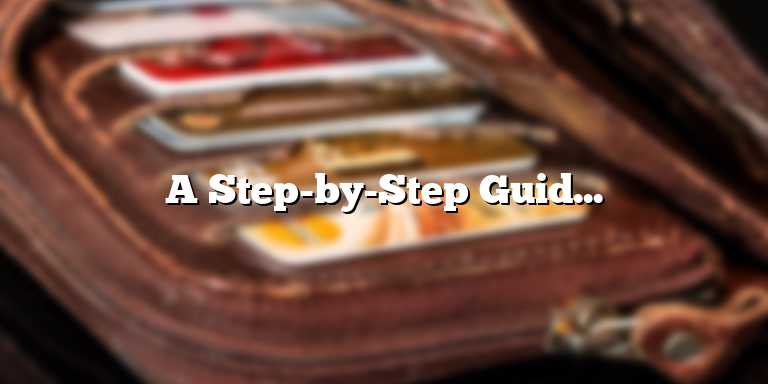
Understanding Tooth Pain from Grinding
Do you often wake up with tooth pain or sensitivity? If the answer is yes, then chances are you might be experiencing tooth pain from grinding. Grinding, also referred to as bruxism, is a common condition that affects millions of people worldwide. Studies have shown that about 10% of adults grind their teeth regularly, and the prevalence of the condition is higher in children. The grinding and clenching motions put a lot of force on the tooth enamel, causing damage and exposing the dentin, leading to tooth pain.
Recognizing the symptoms of tooth pain from grinding is crucial to help you identify the problem and seek appropriate help. The most common symptoms of tooth pain from grinding include tooth sensitivity, chipped or fractured teeth, jaw pain or soreness, headaches, earaches, and even sleep disruptions.
If you have tooth pain from grinding, you need to consult your dentist, who can evaluate your symptoms and recommend the best treatment plan to alleviate your pain. Treatment options for tooth pain from grinding vary depending on the extent of the damage and the underlying cause of bruxism.
Tooth sensitivity is a common symptom of tooth pain from grinding, and there are several ways to alleviate it. Your dentist may recommend using desensitizing toothpaste to help reduce sensitivity. They may also suggest using a mouthguard or splint to protect your teeth from further damage while you sleep. Mouthguards create a barrier between the upper and lower teeth, preventing contact and cushioning the force created by grinding and clenching motions.
If you grind your teeth during the day, your dentist may suggest relaxation techniques to help reduce stress levels, which may help alleviate the condition. Techniques such as meditation, yoga, or mindfulness can help ease the tension on your jaw muscles, reducing the frequency of grinding and clenching motions.
In severe cases, where tooth pain from grinding has caused extensive damage, your dentist may recommend restorative treatments like dental crowns, overlays, or veneers. These treatments are designed to help protect your teeth from further damage and restore their function and appearance.
In conclusion, tooth pain from grinding is a common dental problem that affects many people worldwide. Recognizing the symptoms and seeking appropriate treatment is crucial to managing the condition and alleviating your pain. Depending on the extent of the damage and the underlying cause of bruxism, your dentist may recommend using a mouthguard, relaxation techniques, or restorative treatments like dental crowns, overlays, or veneers. Remember, prevention is key! Maintaining good oral hygiene, reducing stress levels, and avoiding alcohol and caffeine can help prevent tooth pain caused by grinding.
Ways to Relieve Tooth Pain from Grinding
Grinding teeth is a common sleeping disorder that affects millions of people worldwide. This condition, also called bruxism, can cause headaches, jaw pain, and even damage teeth. If you suffer from tooth pain caused by grinding, you may wonder what you can do to relieve the discomfort. Here are some ways to alleviate tooth pain from grinding:
Use a Mouthguard or Splint
A mouthguard or splint can protect your teeth from further damage caused by grinding. These appliances work by cushioning your teeth, reducing the impact of clenching and grinding. You can purchase a mouthguard or splint from a dental professional or pharmacy. They are typically made from acrylic materials that mold to your teeth, providing a custom fit for comfortable use while sleeping. Consult your dentist before purchasing a mouthguard or splint. Your dental professional can ensure proper fit and effectiveness of the device.
Apply Warm Compresses
Applying warm compresses to your jaw can help relax the muscles and alleviate pain caused by grinding. Simply soak a clean, soft cloth in warm water, wring it out, and hold it against your jaw for 10-15 minutes. Repeat the process several times throughout the day, especially before going to bed, to promote relaxation and provide relief from teeth grinding pain.
Take Over-The-Counter Pain Medication
Over-the-counter pain medication, such as ibuprofen or acetaminophen, can help relieve tooth pain caused by grinding. These medications work by blocking pain receptors in the brain and reducing inflammation in the jaw muscles. Take the recommended dosage as directed on the packaging, and only as needed.
Practice Relaxation Techniques
Practicing relaxation techniques, such as deep breathing, can help reduce stress and tension that contribute to teeth grinding. Taking deep breaths and focusing on relaxing your jaw and facial muscles can work wonders for reducing pain. Make relaxation techniques part of your daily routine, especially before going to bed, to reduce the likelihood of teeth grinding and alleviate tooth pain.
If you experience tooth pain caused by grinding, try these techniques for relief. Remember to consult your dental professional for advice and treatment if the pain persists. By protecting your teeth and practicing relaxation techniques, you can reduce the discomfort associated with teeth grinding and promote overall dental health and well-being.
Preventing Tooth Pain from Grinding
If you suffer from tooth pain caused by grinding your teeth, you know how debilitating it can be. The constant pain and discomfort can greatly affect your quality of life. Fortunately, there are steps you can take to prevent tooth pain from grinding. Here are some effective ways to prevent your teeth from grinding and ensuring relief from tooth pain:
1. Manage Stress Levels: Stress is one of the leading causes of tooth pain from grinding. By learning how to manage your stress levels, you can prevent clenching and grinding of teeth. Some effective stress management techniques include meditation, deep breathing exercises, yoga, and regular physical exercise. By incorporating these relaxation techniques into your daily routine, you can reduce your overall stress levels and prevent tooth pain from grinding.
2. Get Sufficient Sleep: Lack of sleep can lead to a range of health problems, including tooth pain from grinding. When you’re sleep deprived, your body produces more stress hormones, which can lead to bruxism (the grinding of teeth). By getting sufficient sleep each night, you can help to prevent tooth pain caused by grinding. Aim for 8 hours of sleep a night and try to maintain a regular sleep schedule.
3. Avoid Caffeine and Alcohol: Caffeine and alcohol can disrupt your sleep patterns and increase your overall stress levels, making it more likely that you will grind your teeth. Cutting back on caffeine and alcohol can greatly reduce your risk of tooth pain caused by grinding. If you need a pick-me-up, try drinking a cup of green tea instead, which is lower in caffeine and has less impact on your overall health.
4. Practice Good Dental Hygiene: Good oral hygiene practices such as brushing and flossing regularly, can help prevent tooth pain caused by grinding. Regular dental check-ups can identify potential problems early to prevent tooth pain. If you are already suffering from tooth pain due to grinding, it is important to see your dentist as soon as possible. They can recommend treatments such as dental splints or mouthguards to prevent further damage.
Preventing tooth pain from grinding requires a holistic approach to your overall health and wellbeing. By managing your stress levels, getting sufficient sleep, avoiding caffeine and alcohol, and practicing good dental hygiene, you can prevent tooth pain from grinding and maintain healthy teeth and gums. If you are already experiencing tooth pain due to grinding, it is important to seek treatment from your dentist as soon as possible. Together, you can work to find a suitable solution to relieve your pain and prevent further damage.
When to See a Dentist
Tooth pain from grinding can be frustrating and uncomfortable to deal with. While there are steps you can take at home to alleviate symptoms, sometimes these efforts may not be enough. It’s important to know when it’s time to see a dentist for proper evaluation and treatment.
If you’ve been experiencing tooth pain from grinding and have attempted self-treatment, such as using a mouthguard or trying at-home remedies, but the pain persists, it’s time to schedule a visit with your dentist. The dentist will be able to perform a thorough evaluation of your teeth and make a proper diagnosis to determine the root cause of the pain.
In some cases, tooth pain from grinding can lead to severe damage or infection. Signs of severe damage or infection include sensitivity to hot and cold temperatures, swelling, and severe pain. If you experience any of these symptoms, it’s essential to see a dentist right away. Delaying treatment could lead to more severe dental problems, resulting in more extensive and costly procedures.
Another reason to see a dentist for tooth pain from grinding is to get a proper fitting mouthguard. Sometimes, over-the-counter mouthguards may not fit correctly or provide the necessary support to prevent grinding. A dentist can take an impression of your teeth to create a customized mouthguard that will fit securely and comfortably.
Overall, it’s crucial to see a dentist for tooth pain from grinding if at-home treatments are unsuccessful, or if severe damage or infection is suspected. Prompt treatment can prevent more severe dental problems and alleviate pain so you can get back to your day-to-day routine.
Prevention Measures
The first step to relieving tooth pain caused by grinding is to implement preventative measures. Wearing a mouthguard while sleeping is one of the most effective ways to prevent further damage to teeth. A customized mouthguard can be created by a dentist to fit the specific shape of your mouth, ensuring maximum protection. It’s important to also reduce stress in daily life, as stress has been linked to teeth grinding. Taking up relaxation techniques such as meditation or yoga can help decrease stress levels and prevent teeth grinding.
At-Home Remedies
In addition to preventative measures, there are several at-home remedies that can help alleviate tooth pain caused by grinding. Applying a warm compress to the jaw can help relax the muscles and reduce pain. Over-the-counter pain relievers such as ibuprofen or acetaminophen can also help reduce inflammation and discomfort. It’s important to avoid consuming foods and drinks that can exacerbate tooth pain, such as sugary or acidic foods.
Professional Dental Care
If tooth pain from grinding persists, it’s important to consult a dental professional. A dentist can assess the extent of the damage and provide treatments to relieve pain and prevent further damage. Treatments such as dental fillings, crowns, or root canals may be necessary to repair any damaged teeth or prevent further wear and tear. In severe cases, orthodontic treatment such as braces may be recommended to properly align the teeth and reduce grinding.
Alternative Treatments
Some individuals may choose to explore alternative treatments to alleviate tooth pain caused by grinding. Acupuncture, massage therapy, and chiropractic care have been used to treat teeth grinding and associated pain. While there is limited scientific evidence to support the effectiveness of these treatments, some individuals have reported reduced pain and improved well-being.
Final Thoughts
Tooth pain caused by grinding can be a painful and frustrating experience. Implementing preventative measures, utilizing at-home remedies, seeking professional dental care, or exploring alternative treatments can all help alleviate symptoms and prevent further damage. It’s important to consult a dental professional if pain persists, as they can provide personalized treatment solutions for your specific needs.






